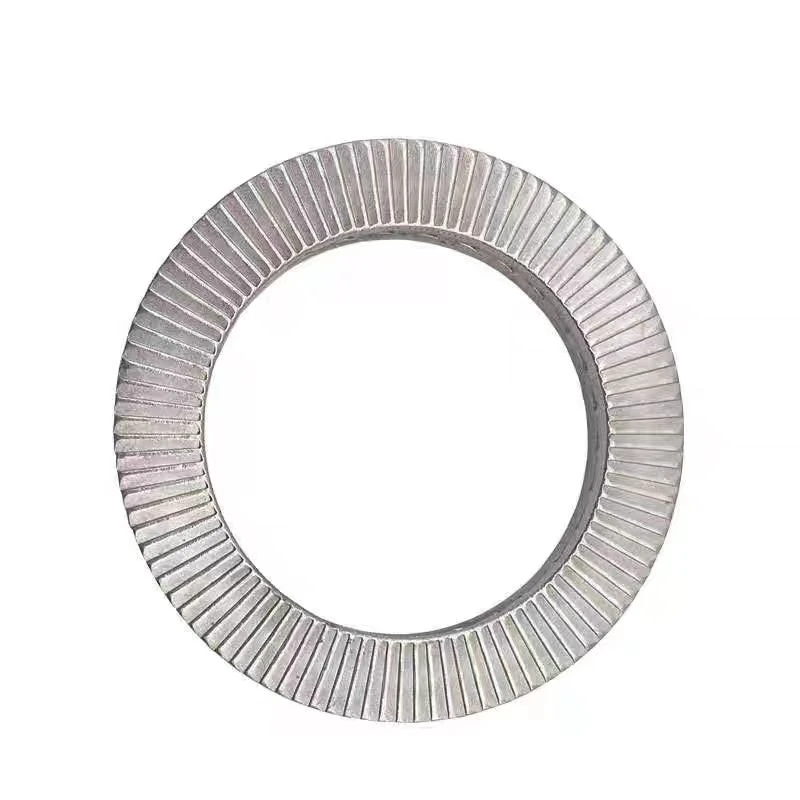

M12 Flange Nut Specifications and Applications in Mechanical Engineering and Construction
Oct . 11, 2024 04:24 Back to list
M12 Flange Nut Specifications and Applications in Mechanical Engineering and Construction
Understanding M12 Flange Nuts A Comprehensive Guide
Flange nuts are essential components in various engineering and construction applications, playing a crucial role in securing connections and ensuring stability in assemblies. Among the different sizes available, the M12 flange nut is particularly popular due to its versatility and strength. This article explores the specifications, applications, benefits, and considerations about M12 flange nuts.
What is an M12 Flange Nut?
An M12 flange nut is a type of nut that features a built-in flange, which provides a larger surface area. This flange acts as a washer, distributing the load evenly over a larger area than a regular nut, thereby reducing the risk of damage to the connected material. The M12 designation indicates that the nut’s inner diameter is 12 millimeters, aligning with the metric system used worldwide.
Specifications
M12 flange nuts are typically made from a variety of materials, including steel, stainless steel, and nylon, each offering different attributes of strength, corrosion resistance, and weight. The most common surface treatment for these nuts is either plain finish, zinc plating, or galvanizing, which enhances their durability and resistance to rust and other environmental factors.
The dimensions of an M12 flange nut are standardized as per various international standards, like ISO and DIN. Generally, the width across the flats (AF) is around 18 mm, and the thickness is approximately 7 mm. These specifications ensure compatibility with M12 bolts, making them a go-to choice for many assembly needs.
Applications
M12 flange nuts are widely utilized in many sectors, including automotive, aerospace, construction, and general engineering. They are particularly useful in applications that require a secure connection without the risk of the nut loosening over time. For instance, they are commonly found in assembly structures like steel frames, machinery, and even in household furniture.
In automotive applications, M12 flange nuts are used in critical safety components, such as chassis connections and engine mounts. Their ability to maintain torque and resist vibrations ensures that connections remain tight over time, promoting vehicle safety.
m12 flange nut

Advantages of Using M12 Flange Nuts
1. Load Distribution The integral flange provides superior load distribution, reducing the chances of damage to the material and preventing the nut from pulling through the surface.
2. Vibration Resistance The design of flange nuts enhances their ability to resist loosening due to vibrations, which is particularly important in machinery and automotive applications.
3. Ease of Installation With a larger surface area, flange nuts are easier to grip and tighten during installation. This can save time and reduce tool wear.
4. Reduced Parts Requirement The flange serves dual purposes, eliminating the need for a separate washer in many applications, which can simplify inventory and reduce costs.
Considerations When Using M12 Flange Nuts
While M12 flange nuts offer several advantages, there are important considerations to keep in mind. Firstly, it is crucial to ensure that the correct torque settings are adhered to during installation to prevent over-tightening, which can damage the threads or flange surface. Secondly, selecting the right material based on the application’s environmental conditions is vital. For example, stainless steel is preferred in corrosive environments, whereas carbon steel may suffice in indoor applications.
Additionally, it’s important to regularly inspect the nuts and connections for signs of wear or corrosion, especially in high-stress or outdoor environments.
Conclusion
In summary, M12 flange nuts are indispensable fasteners in many engineering applications. Their design not only enhances load distribution and vibration resistance but also simplifies assemblies by reducing the number of parts required. As industries continue to evolve, the demand for reliable and durable fastening solutions like M12 flange nuts remains high. Understanding their specifications, applications, and advantages can lead to more effective and safer use in various projects. Whether you are a seasoned engineer or a DIY enthusiast, investing in quality M12 flange nuts can elevate the integrity of your assemblies.
Latest news
-
High-Strength Hot-Dip Galvanized Bolts-Hebei Longze|Corrosion Resistance&High Strength
NewsJul.30,2025
-
Hot Dip Galvanized Bolts-Hebei Longze|Corrosion Resistance&High Strength
NewsJul.30,2025
-
Hot Dip Galvanized Bolts - Hebei Longze | Corrosion Resistance, High Strength
NewsJul.30,2025
-
High-Strength Hot Dip Galvanized Bolts-Hebei Longze|Corrosion Resistance, Grade 8.8
NewsJul.30,2025
-
Hot Dip Galvanized Bolts-Hebei Longze|Corrosion Resistance,High Strength
NewsJul.29,2025
-
High-Strength Hot Dip Galvanized Bolts - Hebei Longze Metal Products Manufacturing Co., Ltd.|corrosion resistance&high strength
NewsJul.29,2025

